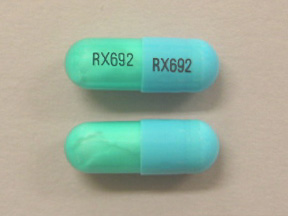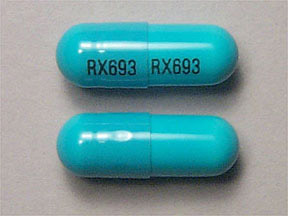Clindamycin
Uses
Clindamycin is prescribed to treat a range of serious infections that have been caused by Bactria.
Formulation – Clindamycin is formulated using clindamycin hydrochloride equivalent to 150 mg of clindamycin, actose monohydrate, maize starch, magnesium stearate, talc, Gelatin, azorubine (E122) and indigo carmine (E132).
Clindamycin is a drug that belongs to the Lincomycin derivatives drug class, and it has been found useful in additional to its main prescribed use to treat Bacterial Infection, Sinusitis, Bacterial Vaginitis and Skin or Soft Tissue Infection. If any side effects are caused by this drug a range of alternative drugs, listed further down this guide, may be prescribed.
Side Effects / Precautions
Clindamycin does have quite a number of side effects and those side effects which you may experience when taking it include a change in bowel habits, mild nausea, vomiting, or stomach pain, joint pain, vaginal itching or discharge, mild rash or itching, heartburn, irritation in your throat.
Clindamycin does have side effects as mentioned above, and if you experience any of the above side effects, you should consult a doctor or medical professional immediately. As a precaution you should also have a discussion with your doctor to see if this drug is suitable for you if you have any pre-existing medical conditions.
Alternatives
Ciprofloxacin – One of the many different alternative drugs that you may be prescribed is this one, and it is a drug that has been found to be a good alternative should you be suffering from a bacterial infection. There are several other alternatives you could be prescribed by your doctor for that condition and they are amoxicillin, doxycycline, metronidazole, azithromycin, Augmentin.
Prednisone – If you are suffering any of the side effects that are listed above and you are suffering from sinusitis then you may be prescribed this drug. However, there are several others which have been found to be suitable alternatives and they include ciprofloxacin, amoxicillin, azithromycin, Augmentin, Levaquin.
Metronidazole – Should you be suffering from Bacterial Vaginitis and you are suffering any side effects then this drug is one alternative you could or may be prescribed. Should you be found to be intolerable then you will find there are several other alternatives available including Cleocin, tinidazole, MetroGel-Vaginal.
Augmentin – You could have been diagnosed as suffering from Skin or Soft Tissue Infection and if so there are a range of alternatives drugs available which could be prescribed to you, if you have been found to have been suffering any side effects from other drugs used to treat that condition. The different alternative drugs that can be taken to treat that condition include amoxicillin, doxycycline, metronidazole, azithromycin.


